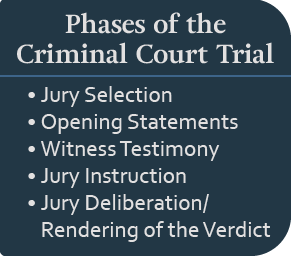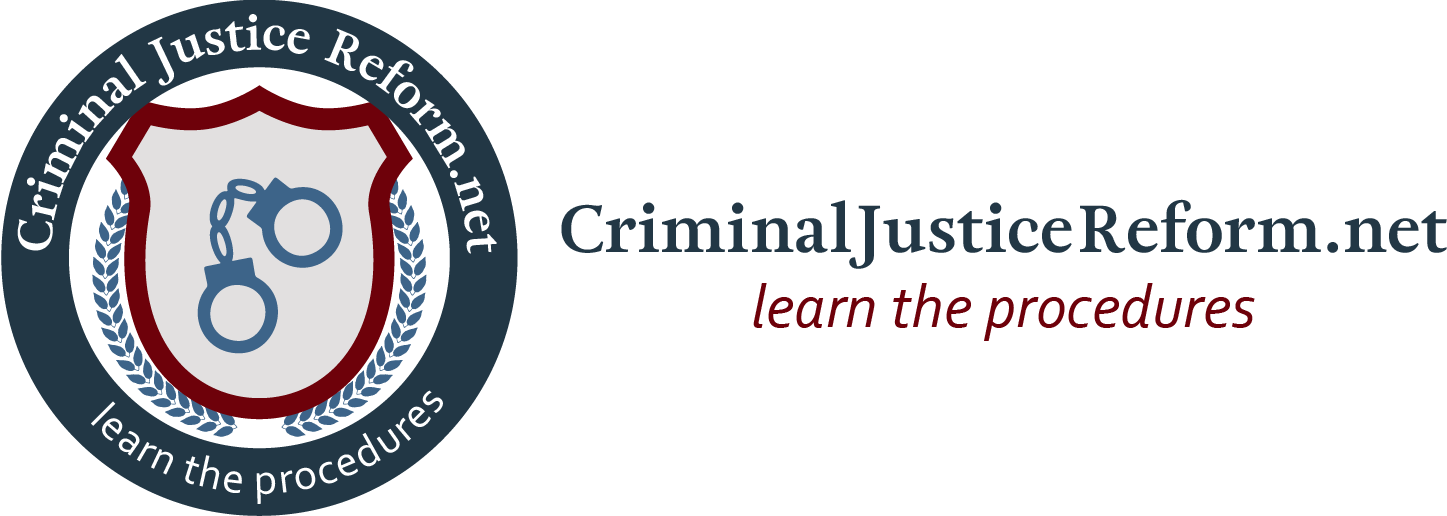Criminal Trials
Perhaps the most significant stage of the U.S. criminal justice system is the criminal court trial. At this point in the criminal justice process, a suspect has been arrested by a law enforcement agent and a prosecutor has formally filed charges in the case, effectively turning the suspect into a defendant. The defendant has also been afforded the opportunity to obtain a defense attorney, whether by retaining private representation or by the appointment of a public defender.
In a criminal trial, it is up to the jury to decide whether the evidence the prosecutor presents proves the defendant’s guilt “beyond a reasonable doubt.” This is the highest and most stringent standard of proof in the U.S. justice system; the first and second standards are “preponderance of the evidence” and “clear and convincing evidence,” respectively.
Phases of the criminal court trial
A criminal court trial generally consists of six phases: jury selection, opening statements, witness testimony, closing arguments, jury instruction, and jury deliberation/rendering of the verdict.
In reality, these phases play out much like they are portrayed on TV and in movies; however, these fictional courtroom dramas only show a part of the story of the criminal justice system. More often than not, criminal cases are settled long before they ever reach the courtroom.
Criminal cases often are settled by way of plea bargain or plea deal. This occurs when a prosecutor offers the defendant some type of concession, typically a reduced sentence, in return for a “guilty” plea.
In some cases, the prosecution may move for a dismissal of charges prior to the start of the trial, if the prosecutor feels the case is not strong enough to win.

